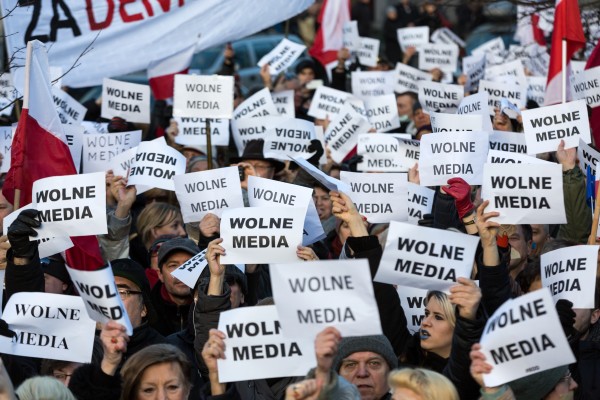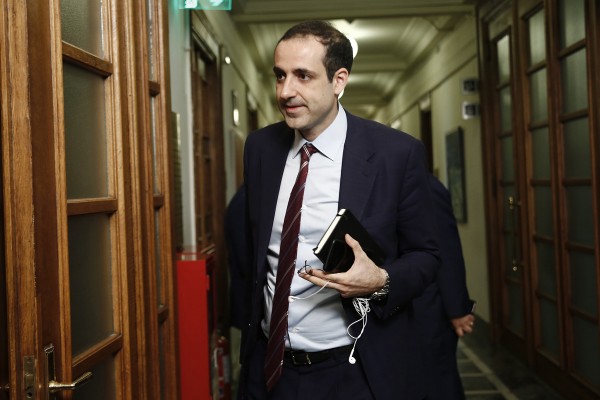Russia’s chief investigator yesterday apologized for an “emotional outburst” against an editor from the newspaper Novaya Gazeta, days after he was accused of threatening to kill the journalist, AP reported.
Investigative Committee chief Alexander Bastrykin, who was accused of taking Novaya Gazeta Deputy Editor Sergei Sokolov to a forest outside Moscow and threatening him days after the two were involved in an altercation in the North Caucasus region, had labelled the account of the alleged threat a mixture of fact and fabrication.
He maintained that position Thursday afternoon, but in a meeting that evening with journalists he reportedly apologized to Novaya Gazeta Editor-in-Chief Dmitry Muratov for the first altercation. According to Radio Free Europe/Radio Liberty, Bastrykin then spoke with Sokolov – who reportedly fled Russia following the alleged threat – by telephone and apologized for a “roadside” conversation.
Muratov shook hands with Bastrykin and said: “We received safety guarantees for our staff members, including those working in the Caucasus as well as Sergei Sokolov….There are no more grudges between us, we continue to work on the cases that we have been working on together for the past six years, including the Anna Politkovskaya [murder] case.”
The earlier altercation, which took place in Nalchik, the capital of the republic of Kabardino-Balkaria in southern Russia, reportedly stemmed from Bastrykin’s anger over Novaya Gazeta stories accusing the Investigative Committee of failing to punish politically-connected gang members allegedly linked to the 2010 mass murder of 12 people, including four children.
Although questions remained about the circumstances of Bastrykin’s alleged threat, the International Press Institute (IPI) welcomed Bastrykin’s apology and expressed hopes that the incident could be a step towards greater accountability in authorities’ treatment of journalists.
IPI Executive Board Vice Chair Galina Sidorova, who also chairs the Russian Foundation for Investigative Journalism – Foundation 19/29, said: “The reason why this conflict has had a ‘happy ending’ – unprecedented for today’s Russia – is that it received from the very beginning an overwhelming outpouring of support from colleagues and civil society activists, both here and outside Russia, and even members of Parliament. That might become a really good precedent for investigative journalists, the most endangered part of the Russian journalist community, especially keeping in mind that intimidation and harassment too often come not only from criminal elements, but from official authorities.”


